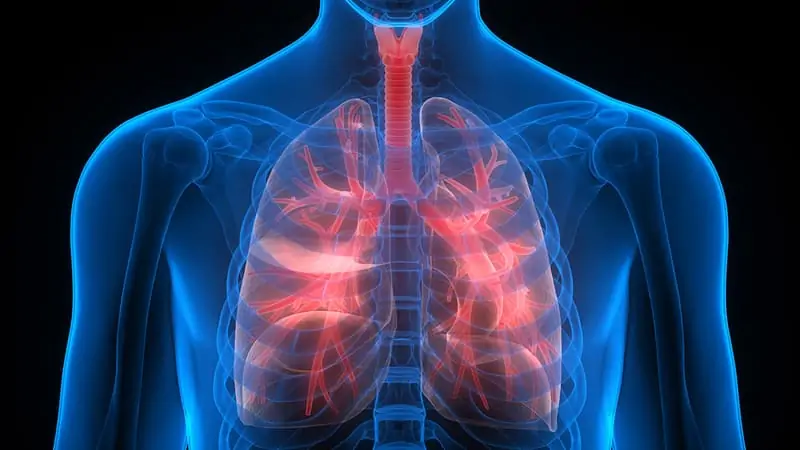The air you breathe contains many gases, of which oxygen makes up 21 percent. For ordinary people, this oxygen concentration in the air is more than enough to go about their day-to-day activities. If you have chronic obstructive pulmonary disease (COPD), you may be under medication and living with the lifestyle modifications suggested by your physician.
However, have you heard about the benefits of oxygen therapy for COPD? This therapy involves providing supplemental oxygen to your body, which helps you get a good night’s sleep. The therapy also enhances the mood, keeps you alert at all times, and gives you the stamina to carry out your day-to-day chores at home or workplace. People with COPD have impaired lung functions and need supplemental oxygen as the oxygen they get from the air is not sufficient for their body’s needs.
Who Needs this Therapy?
How do you find out if you require oxygen therapy? It would be best if you left it to your doctor, who will measure the oxygen levels in your blood, along with the carbon-dioxide levels as well. Anyone diagnosed with chronic pulmonary disease (COPD) will benefit immensely from oxygen therapy, though it is advisable to check the oxygen levels in your blood before going for this therapy.
Typical symptoms of low oxygen levels in the blood include mood swings, irritability, fatigue, breathlessness, palpitations, fluid retention, and other heart-related issues. The good news is that you have compact, portable devices today that can be used at home, saving you a trip to the doctor.
Points to Ponder
It would be best if you were examined by your doctor first. Your doctor will measure the oxygen levels in your blood and recommend oxygen therapy. They will give you a detailed prescription, including the suggested flow rate (the number of liters of oxygen you can breathe in per minute).
The flow rates will vary according to the activity, where less quantity is required for sedentary activities like sitting or sleeping. For brisk activities like walking or exercising, a higher flow rate is required.
Don’t Overdo It
Too much of anything is not good. When too much oxygen gets concentrated in your blood, it tends to slow down your breathing. Slow breathing allows carbon dioxide to build up in your blood. Hence, religiously following the flow rates prescribed by your doctor is very important.
When Do You Need More Oxygen?
The body’s need for oxygen varies according to the activities you are involved in.
While Exercising
Brisk exercise is good for the body. However, when people with cardiac problems or COPD exercise, they tend to get tired and breathless faster than ordinary people. Such fatigue is caused as the blood oxygen levels drop for people suffering from COPD only when they exercise or walk briskly. Using an oxygen concentrator while exercising boosts the performance and prevents shortness of breath you experience during brisk workouts.
While Sleeping
Your breathing settles down to a slow pace while you sleep as the body’s oxygen requirement is lowered. You tend to breathe slowly while sleeping. However, people suffering from COPD have sleep-related breathing disorders because of low oxygen levels in the blood. In such cases, using a Home Oxygen Concentrator helps maintain ideal oxygen levels in your blood.
Is Oxygen Therapy Beneficial?
It has been proved that long-term use of supplemental oxygen improves the survival rate of patients with COPD. Studies conducted by the Long-term Oxygen Treatment Trial Research Group indicate that the benefits of oxygen therapy for COPD and severe resting hypoxemia are evident. The research studies also suggest that supplemental oxygen improves exercise performance in patients with COPD.
Today, the use of long-term oxygen therapy (LTOT) is common in COPD patients. Over 1 million Medicare recipients use oxygen therapy, the annual cost of which exceeds $2 billion. It is no wonder then that oxygen was the first treatment to prolong life in people with COPD.
Studies indicate that undergoing oxygen therapy at home for 15 hours or more per day leads to a better quality of life and improves people’s longevity suffering from COPD and low oxygen levels in the blood. Oxygen therapy is proven to have short-term and long-term benefits for people who have COPD. Using oxygen therapy enhances memory power and helps relieve the confusion arising out of low oxygen levels in the blood.
Summing it Up
With pollution levels rising steadily and the Air Quality Index (AQI) in most cities hovering at alarming levels, the quality of the air we breathe is horrible. Such high levels of pollution lead to lung infections that can be fatal if left untreated. Thanks to supplemental oxygen in this therapy, people lead better lives, despite conditions like COPD and resting hypoxemia.








Leave a Reply
You must be logged in to post a comment.